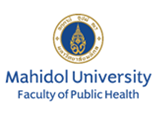[Event Report] Global Health Education Program (G-HEP) 2021-2022 — Global Health Academy Lecture 6: Migrant Health (July 14, 2021)
date : 7/30/2021
Tags: Global Health
![[Event Report] Global Health Education Program (G-HEP) 2021-2022 — Global Health Academy Lecture 6: Migrant Health (July 14, 2021)](https://hgpi.org/en/wp-content/uploads/sites/2/GHEP-06.jpg)
The Global Health Education Program (G-HEP) held its sixth lecture of the Global Health Academy on July 14th, welcoming the Deputy-Director General of the National Institute of Population and Social Security Research, Dr. Reiko Hayashi. Dr. Hayashi has conducted both national and international research on health and population, urbanization and population migration, and population and development. The lecture focused on the theme Migrant Health.
Dr. Hayashi began by explaining the concept and definitions of migrants and refugees. She then introduced trends relating to migration throughout the world. She also discussed developments in reducing disparities associated with migration in light of Goal 10 of the Sustainable Development Goals (SDGs). According to the United Nations Statistics Division (UNSD), Japan, where the number of immigrants is relatively low, has not met Goal 10.7.2, in particular in the areas of migrant’s socio-economic welfare and mobility dimensions of crises. On the other hand, Thailand has a very large number of migrants, especially refugees and stateless people, and has made considerable progress in its migration policies.
In the second half of the session, Dr. Hayashi spoke about various factors affecting the health status of migrants in Japan. One of these factors is access to health care which has been exasperated by the COVID-19 pandemic as more and more migrants lack access to care. In addition to the direct impact of the pandemic such as infections and deaths of vulnerable migrants, there are also serious indirect impacts such as unemployment and an overall lack of support.
The next lecture on Policy Recommendations and Advocacy will take place on August 11th.
■ Program Lectures
1) Thailand’s Health System and COVID-19 (complete)
2) Japan’s Health System and COVID-19 (complete)
3) Community Health (complete)
4) Health Technology (complete)
5) Global Health (complete)
6) Migrant Health (complete)
7) Policy Recommendations and Advocacy
8) Quantitative and Qualitative Research
The Global Health Education Program (G-HEP) is a joint program organized by the Health and Global Policy Institute and Mahidol University, Faculty of Public Health in Thailand.
■About Mahidol University
Mahidol University is the number one university in Thailand for medical education and the first public health academic institution in Thailand.
Vision:
Be a leader in promoting population health through being a health literate faculty in ASEAN countries by 2021.
Mission:
1. To offer an outcome based public health education through being a health literate faculty.
2. To be visible as a leader in public health education, integrative and innovative research, professional academic services on the basis of good governance to promote health and longevity and the betterment of mankind.
Top Research & Recommendations Posts
- [Policy Recommendations] The Path to a Sustainable Healthcare System: Three Key Objectives for Public Deliberation (January 22, 2026)
- [Research Report] The 2025 Public Opinion Survey on Healthcare in Japan (March 17, 2025)
- [Research Report] Perceptions, Knowledge, Actions and Perspectives of Healthcare Organizations in Japan in Relation to Climate Change and Health: A Cross-Sectional Study (November 13, 2025)
- [Policy Recommendations] Reshaping Japan’s Immunization Policy for Life Course Coverage and Vaccine Equity: Challenges and Prospects for an Era of Prevention and Health Promotion (April 25, 2025)
- [Research Report] The 2023 Public Opinion Survey on Satisfaction in Healthcare in Japan and Healthcare Applications of Generative AI (January 11, 2024)
- [Research Report] AMR Policy Update #4: Cancer Care and AMR (Part 1)
- [Public Comment Submission] “Assessment Report on Climate Change Impacts in Japan (Draft Overview)” (December 24, 2025)
- [Policy Recommendations] Developing a National Health and Climate Strategy for Japan (June 26, 2024)
- [Research Report] The Public Opinion Survey on Child-Rearing in Modern Japan (Final Report) (March 4, 2022)
- [Research Report] Survey of Japanese Physicians Regarding Climate Change and Health (December 3, 2023)
Featured Posts
-
2026-01-09
[Registration Open] (Hybrid Format) Dementia Project FY2025 Initiative Concluding Symposium “The Future of Dementia Policy Surrounding Families and Others Who Care for People with Dementia” (March 9, 2026)
![[Registration Open] (Hybrid Format) Dementia Project FY2025 Initiative Concluding Symposium “The Future of Dementia Policy Surrounding Families and Others Who Care for People with Dementia” (March 9, 2026)](https://hgpi.org/en/wp-content/uploads/sites/2/dementia-20260309-top.png)
-
2026-02-05
[Registration Open] (Webinar) The 141st HGPI Seminar “Current Status and Future Prospects of Korea’s Obesity Policy: Voices of People with Lived Experience in Policy Promotion” (March 3, 2026)
![[Registration Open] (Webinar) The 141st HGPI Seminar “Current Status and Future Prospects of Korea’s Obesity Policy: Voices of People with Lived Experience in Policy Promotion” (March 3, 2026)](https://hgpi.org/en/wp-content/uploads/sites/2/hs141-top-1.png)
-
2026-02-06
[Research Report] AMR Policy Update #5: Cancer Care and AMR (Part 2)
![[Research Report] AMR Policy Update #5: Cancer Care and AMR (Part 2)](https://hgpi.org/en/wp-content/uploads/sites/2/HGPI_20260204_AMR-Policy-Update-5.png)





